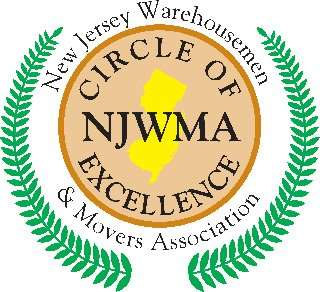4 Important Moving Terms You Should Know and What They Mean
The better you understand the terminology used in the moving industry, the easier it is to enjoy a seamless experience. Taking a few moments to familiarize yourself with common moving phrases makes it easier to arrange your household move but also assists in helping you assemble any questions you might have about your moving contract. Here are four crucial moving terms you should know and what they mean.
1. Bill of Lading
A bill of lading is a contract between the moving company and the customer. Essentially, it establishes the terms and conditions of the move and serves as a customer receipt for goods and a contract for transportation. Customers signing this document acknowledge they permit their belongings to be loaded on the truck and released to the carrier. Before signing this document, read it carefully and understand all the terms. Movers are happy to answer any questions.
2. Full-Service Packing and Unpacking
Moving companies typically offer various services aside from transporting customer possessions. One popular service is full-service packing and unpacking. The movers pack all the household goods, prepare them for transport, and then unpack them upon arrival at the new home. You should always ask what an individual company’s full-service packing and unpacking covers, but generally, the cost of this service is inclusive of cartons, packing/unpacking labor, and removal of debris.
3. Binding/Non-Binding Estimate
When a moving company and a customer agree, they sign a contract. As a part of the negotiations, an estimate is drawn up—there are two primary types of estimates.
- Binding Estimate: This document is drawn up in advance of the move, itemizes the total cost of the relocation, and guarantees the final quote they offer. No matter how long the job takes the movers to complete, they are obligated to charge the quoted flat rate. *Requires an onsite estimate.
- Non-Binding Estimate: This document is a mover’s estimated cost based on the estimated weight of the items to be moved and any additional services contracted. It is not a final price and will be adjusted based on the actual weight and other circumstances on moving day.
Additionally, some movers may charge “hourly rates,” which means the customer is charged by the hour, per man, per truck, but most movers are likely to go with binding or non-binding estimates.
4. Non-Allowable Items
Professional moving companies are dedicated to ensuring a smooth relocation experience and have an important checklist of items they will not move. In addition, there are government regulations on relocating hazardous materials, so movers can’t transport dangerous and flammable items because they are safety risks. These items include explosives and toxic substances.
The homeowner should transport personal and sentimental items themselves since the movers might not want the responsibility.
Moving Made Easy
These are just four critical moving terms to know, but there are numerous other important terms as well. Check with your professional movers for a glossary of moving terms.
Contact us today if you have any questions or want to obtain a free quote.








